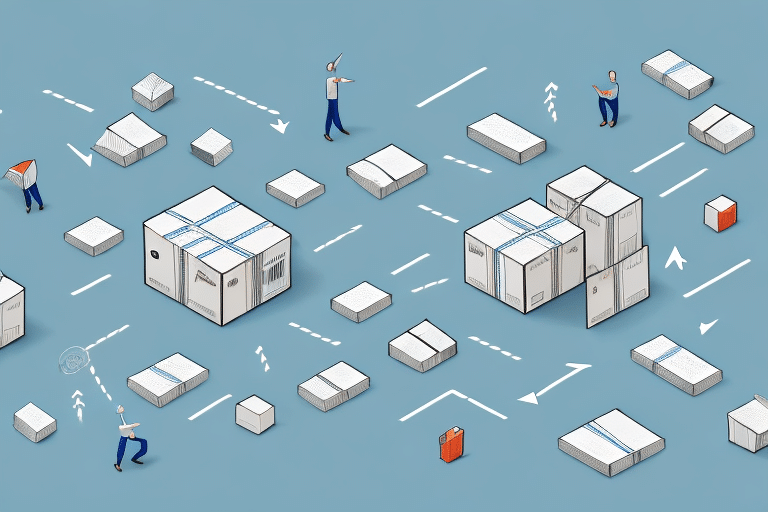Introduction to 3PL Services and Their Benefits for UPS
In the evolving landscape of supply chain management, third-party logistics (3PL) providers have become indispensable for businesses aiming to enhance efficiency and reduce operational costs. UPS, a global leader in logistics, has increasingly partnered with reliable 3PL providers to optimize its supply chain operations. This partnership allows UPS to leverage specialized expertise, advanced technology, and scalable infrastructure, ensuring streamlined operations and superior customer service.
The Role of 3PL Services in Modern Logistics
Modern logistics demands more than just the movement of goods; it requires comprehensive management of the entire supply chain to ensure efficiency, cost-effectiveness, and adaptability. 3PL providers play a crucial role by offering a wide range of services, including:
- Warehousing and Inventory Management: Efficient storage solutions and real-time inventory tracking.
- Transportation Management: Optimizing shipping routes and selecting the most cost-effective carriers.
- Order Fulfillment: Streamlining the process from order receipt to delivery.
- Customs Brokerage: Navigating international trade regulations and ensuring compliance.
By integrating these services, UPS can ensure a seamless flow of goods, reduce lead times, and maintain high levels of customer satisfaction.
Advantages of Outsourcing Logistics to a 3PL Provider
Outsourcing logistics to a 3PL provider offers numerous benefits for businesses like UPS:
Cost Efficiency
3PL providers can negotiate better rates with carriers due to their volume of shipments, leading to significant cost savings. Additionally, outsourcing eliminates the need for substantial investments in infrastructure and technology.
Scalability and Flexibility
3PL services allow UPS to scale operations up or down based on demand fluctuations without the constraints of fixed assets and labor costs. This flexibility is crucial for managing seasonal peaks and expanding into new markets.
Access to Expertise and Technology
Partnering with a 3PL provider gives UPS access to industry experts and state-of-the-art technology platforms that enhance supply chain visibility and efficiency.
Focus on Core Competencies
By outsourcing logistics functions, UPS can concentrate on its core competencies, such as package delivery and customer service, while relying on the expertise of 3PL providers for logistics management.
Selecting and Evaluating the Right 3PL Partner for UPS
Choosing the appropriate 3PL partner is critical for the success of logistics operations. Consider the following factors when selecting a 3PL provider:
Experience and Expertise
Ensure the 3PL provider has extensive experience in the logistics industry and a proven track record of handling similar operations. Specialized knowledge in specific areas, such as international shipping or e-commerce fulfillment, can be advantageous.
Technology Integration
A robust technology platform is essential for real-time tracking, inventory management, and seamless communication. The 3PL provider should offer systems that can integrate smoothly with UPS's existing technologies.
Scalability
The ability to scale operations according to business needs is vital. Assess whether the 3PL provider can accommodate growth and adapt to changing market conditions.
Cost Transparency
Transparent pricing models help prevent unexpected costs and ensure budget alignment. Evaluate the 3PL provider's pricing structure to ensure it offers value for money.
Customer Service and Support
Effective communication and responsive customer support are essential for resolving issues promptly and maintaining smooth operations.
Best Practices for Managing 3PL Partnerships
Effective management of the 3PL partnership ensures long-term success and operational efficiency:
Clear Communication
Establish open lines of communication to facilitate collaboration and address issues swiftly. Regular meetings and updates help maintain alignment on goals and expectations.
Performance Metrics
Implement key performance indicators (KPIs) to monitor the 3PL provider's performance. Metrics such as order accuracy, delivery times, and inventory levels provide insights into operational efficiency.
Continuous Improvement
Encourage a culture of continuous improvement by regularly reviewing processes and seeking opportunities for optimization. Collaborate with the 3PL provider to implement best practices and innovative solutions.
Integration of Systems and Processes
Ensure that the 3PL provider's systems integrate seamlessly with UPS's operations. This integration enhances data visibility, reduces errors, and improves overall supply chain management.
The Future of Logistics and 3PL Services
The logistics industry is rapidly evolving, driven by technological advancements and changing market demands. Key trends shaping the future of 3PL services include:
- Automation and Robotics: Automating warehousing and fulfillment processes to increase efficiency and reduce labor costs.
- Artificial Intelligence and Machine Learning: Utilizing AI for predictive analytics, demand forecasting, and route optimization.
- Blockchain Technology: Enhancing transparency and security in the supply chain through immutable ledgers.
- Sustainability Initiatives: Implementing eco-friendly practices to reduce the environmental impact of logistics operations.
By embracing these innovations, 3PL providers can offer more efficient, reliable, and sustainable logistics solutions, benefiting partners like UPS.
Conclusion: The Essential Role of Reliable 3PL Providers in Modern Logistics
Partnering with a reliable and experienced 3PL provider is crucial for UPS to maintain its competitive edge in the fast-paced logistics industry. 3PL services offer significant advantages, including cost savings, scalability, and access to specialized expertise and technology. By selecting the right 3PL partner and implementing effective management practices, UPS can optimize its supply chain operations, enhance customer satisfaction, and drive business growth. As the logistics landscape continues to evolve, leveraging the strengths of 3PL providers will remain a key strategy for sustained success.








